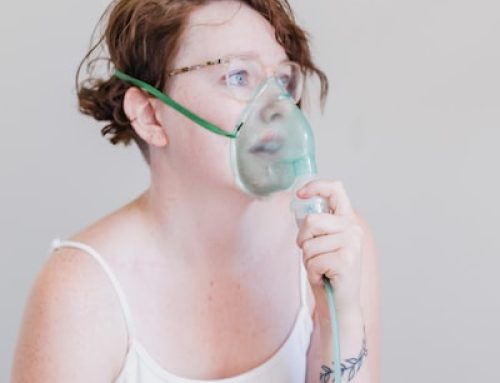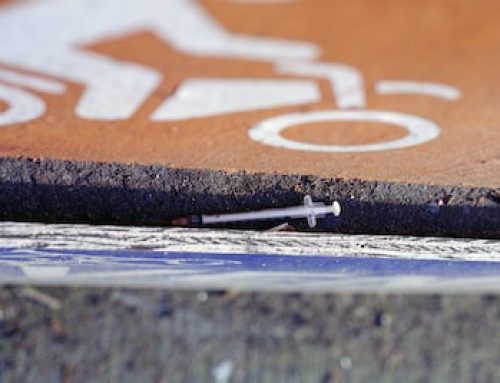Ketamine is a dissociative anesthetic that functions as a non-competitive N-methyl-d-aspartate receptor (NMDAR) antagonist. Ketamine can induce psychedelic states even though it doesn’t seem to focus largely on the serotonergic system. It is widely heralded by researchers as an effective alternative for the treatment of patients with resistant MDD (Major Depressive Disorder) and several other mental health disorders. Sub-anesthetic dosages of ketamine have been shown to have immediate antidepressant effects in both animals and people.
Although Ketamine’s antidepressant mechanism of action is still being thoroughly studied, it is an antagonist of the glutamate receptor subtype that is widely expressed in the central nervous system. (CNS). In addition, it also serves as the mTORC1 pathway activator. N-methyl-d-aspartate receptor or NMDAR is a G-protein coupled receptor, and it plays crucial roles in synaptic plasticity and memory formation within the brain. mTORC1 pathway is responsible for translational processes that regulate cell growth and proliferation.
Ketamine has recently shown promising research in the treatment of certain psychiatric conditions such as bipolar disorder, depression, post-traumatic stress disorder (PTSD), suicidal ideation, and substance abuse disorder. Due to its euphoric, dissociative, and hallucinogenic properties, ketamine abuse has led to its strict regulation and availability. However, in several clinical trials, Ketamine is largely effective in patients with treatment-resistant depression. In fact, Ketamine seems to work within 40 minutes of administration, and sub-anesthetic dosage can slowly help patients in therapy recover from severe symptoms of Major Depressive Disorder (MDD) or Treatment-Resistant Depression (TRD). Most studies agree that Ketamine has curative anti-depressive properties when administered in sub-anesthetic doses.
Although Ketamine could induce manic episodes in patients with bipolar disorder, case studies and open-label trials suggest that Ketamine when administered non-intravenously can be safe and effective for treating bipolar disorder. Additionally, studies also found that Ketamine treatment has a massive impact on suicidal ideation. Patients with suicidal thoughts were administered sub-anesthetic doses, and effects were observed within 4 hours of treatment. The single dose of Ketamine largely decreased suicidal ideation among the patients while also reducing suicidal tendencies for up to a week. However, long-term efficacy is yet to be determined. Overall, Ketamine has been shown to generate anti-suicidal thought processes irrespective of its anti-depressive properties, which itself is a significant breakthrough!
Besides having a significant curative impact on depression, suicidal behavior, and bipolar disorder; Ketamine was also studied for its impact on social anxiety disorder and general anxiety disorder. Six studies that used Ketamine on their patients found that Ketamine when administered at certain doses greatly reduced general anxiety and social anxiety among the participating patients. Surprisingly, patients who initially responded to Ketamine treatment continued to be in remission even after three months of the initial treatment with some help from maintenance treatment. However, the treatment also found that higher doses (1mg/kg) of Ketamine had the most anxiolytic effect although this could induce drug dependency.
A few studies conducted among USA military personnel and other PTSD patients also show promising results. Ketamine largely exhibited relief from PTSD episodes and physical symptoms in a majority of the participants. Additionally, sub-anesthetic doses were also seen to have a promising impact on people with OCD.
While psychedelics have already made a comeback in 2023, it is only a matter of time before FDA-approved treatment approaches with Ketamine and other psychoactive substances become a reality. When it comes to Ketamine, under sub-anesthetic doses, the drug undeniably has curative effects on several mental health disorders.
if you or anyone you know is suffering from mental illness, neurological diseases like Alzheimer’s disease, alcohol addiction, brain trauma, cognitive deficiency, or undergoing treatments for neurodegenerative diseases, please contact Specialized Therapy Associates at 201-488-6678 or The Functional Medicine Center for Personalized Care, LLC (www.FxMedCenters.com) at 201-880-8247 for our Integrative Mind-Body Health services which can greatly help you with holistic mind-body healing.
References:
De Gregorio D, Aguilar-Valles A, Preller KH, Heifets BD, Hibicke M, Mitchell J, Gobbi G. Hallucinogens in Mental Health: Preclinical and Clinical Studies on LSD, Psilocybin, MDMA, and K. J Neurosci. 2021 Feb 3;41(5):891-900. doi: 10.1523/JNEUROSCI.1659-20.2020. Epub 2020 Nov 30. PMID: 33257322; PMCID: PMC7880300.
Mandal S, Sinha VK, Goyal N. Efficacy of therapy in the treatment of depression. Indian J Psychiatry. 2019 Sep-Oct;61(5):480-485. doi: 10.4103/psychiatry.IndianJPsychiatry_484_18. PMID: 31579184; PMCID: PMC6767816.
Walsh Z, Mollaahmetoglu OM, Rootman J, Golsof S, Keeler J, Marsh B, Nutt DJ, Morgan CJA. K for the treatment of mental health and substance use disorders: comprehensive systematic review. BJPsych Open. 2021 Dec 23;8(1):e19. doi: 10.1192/bjo.2021.1061. Erratum in: BJPsych Open. 2022 Jan 18;8(1):e29. PMID: 35048815; PMCID: PMC8715255.






